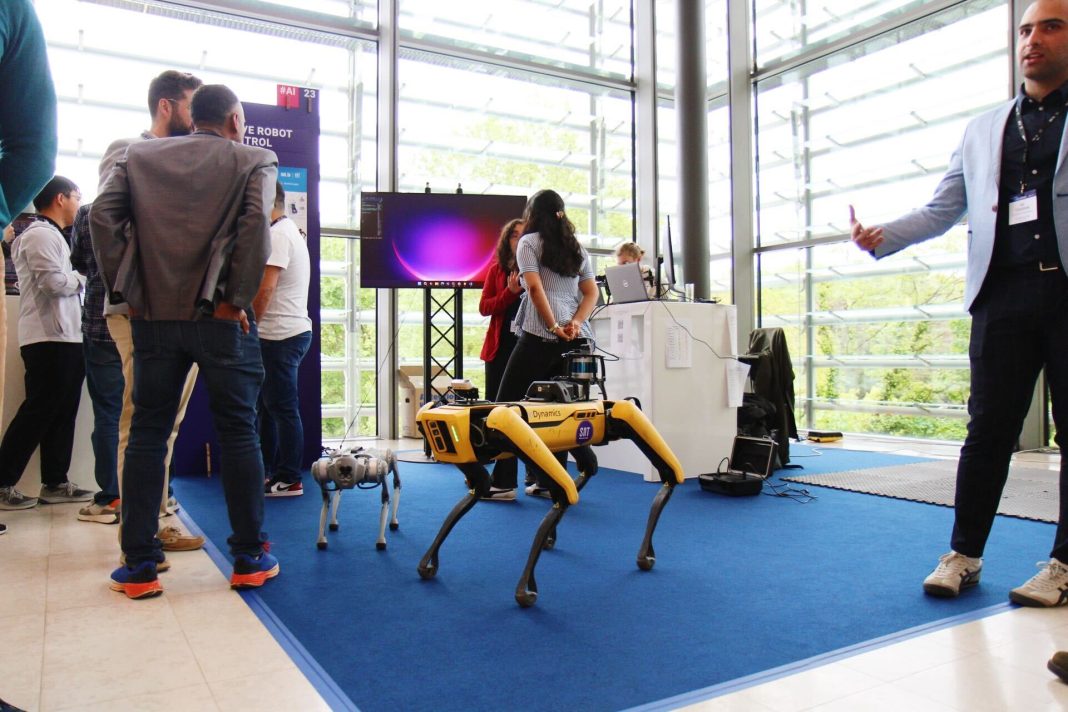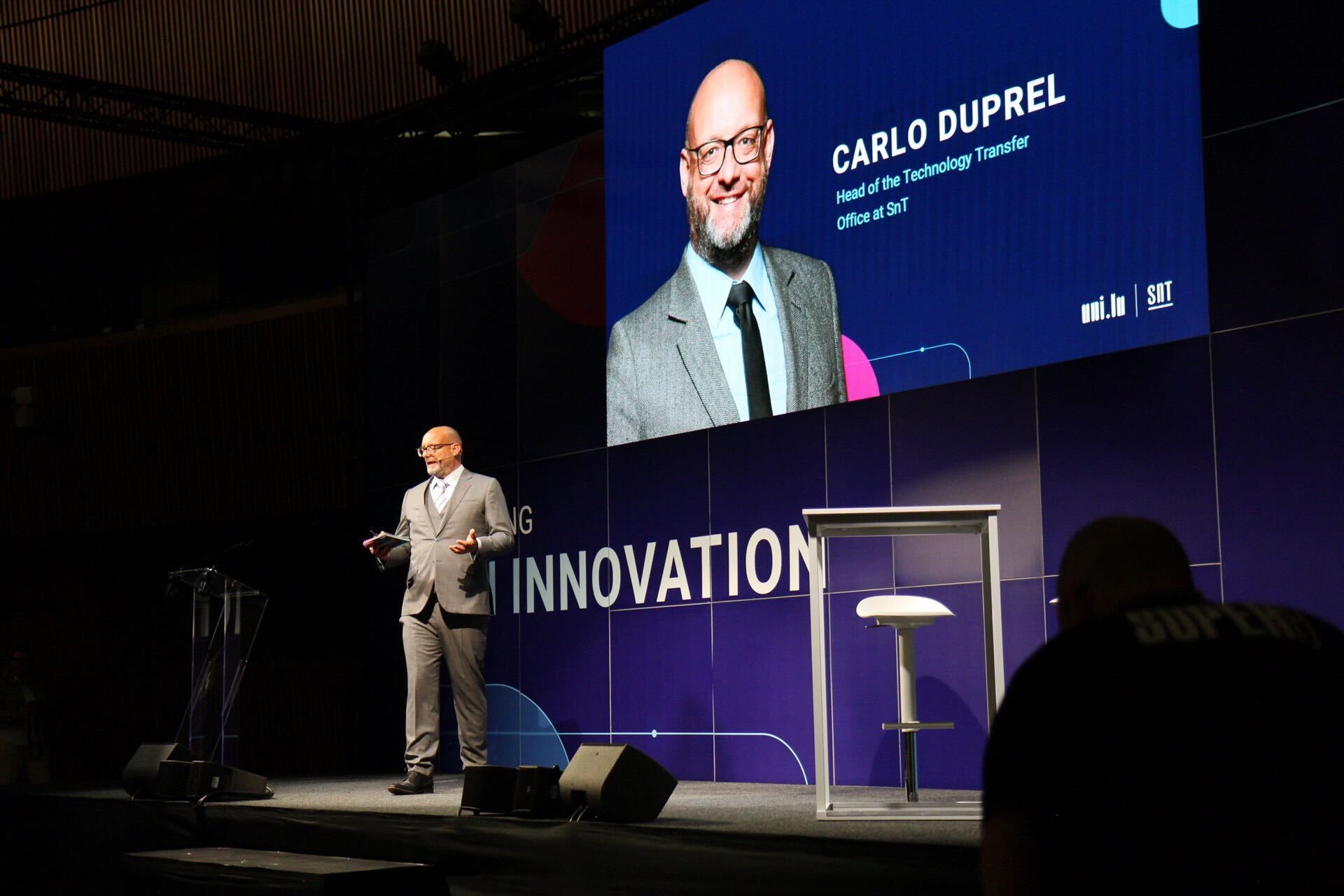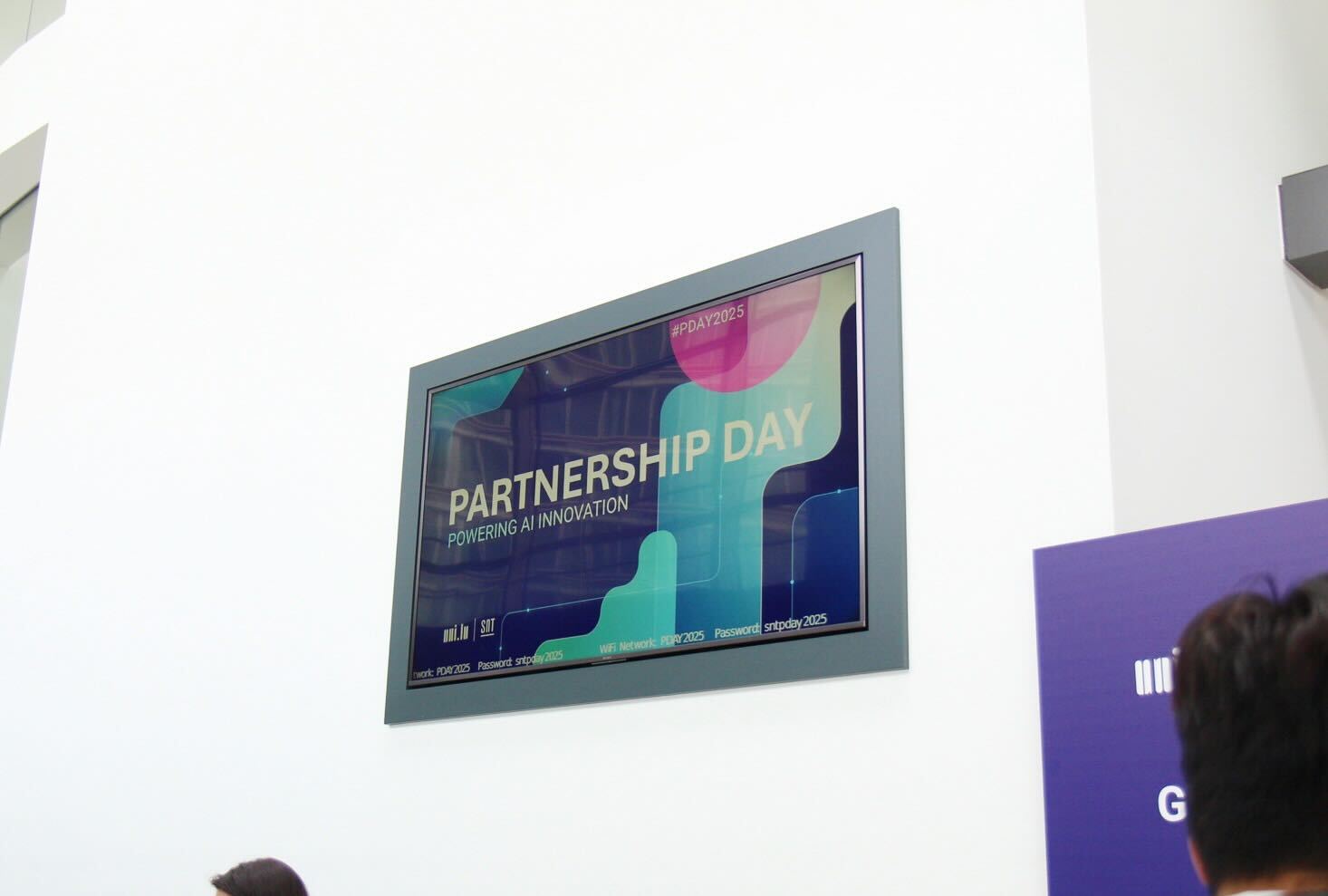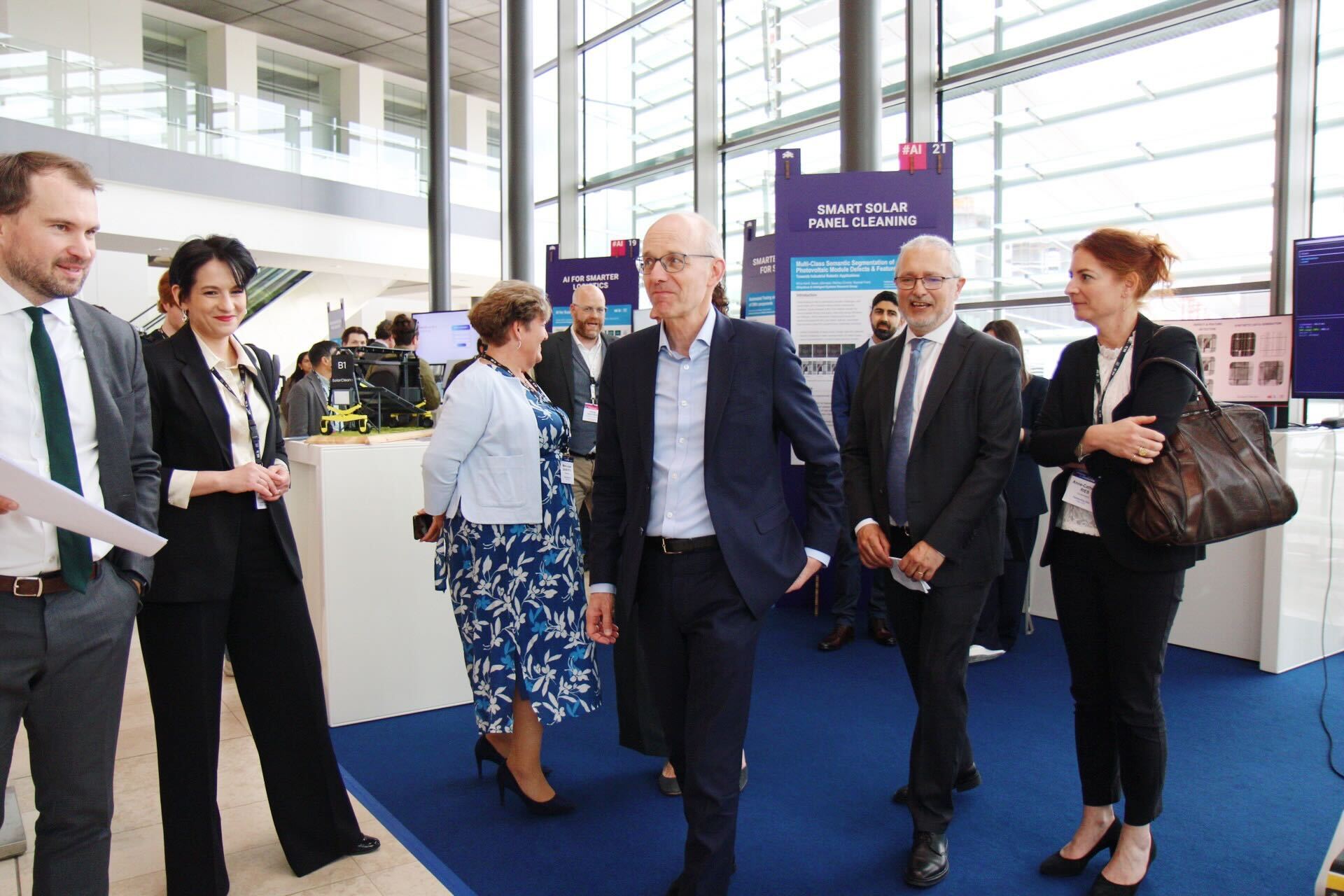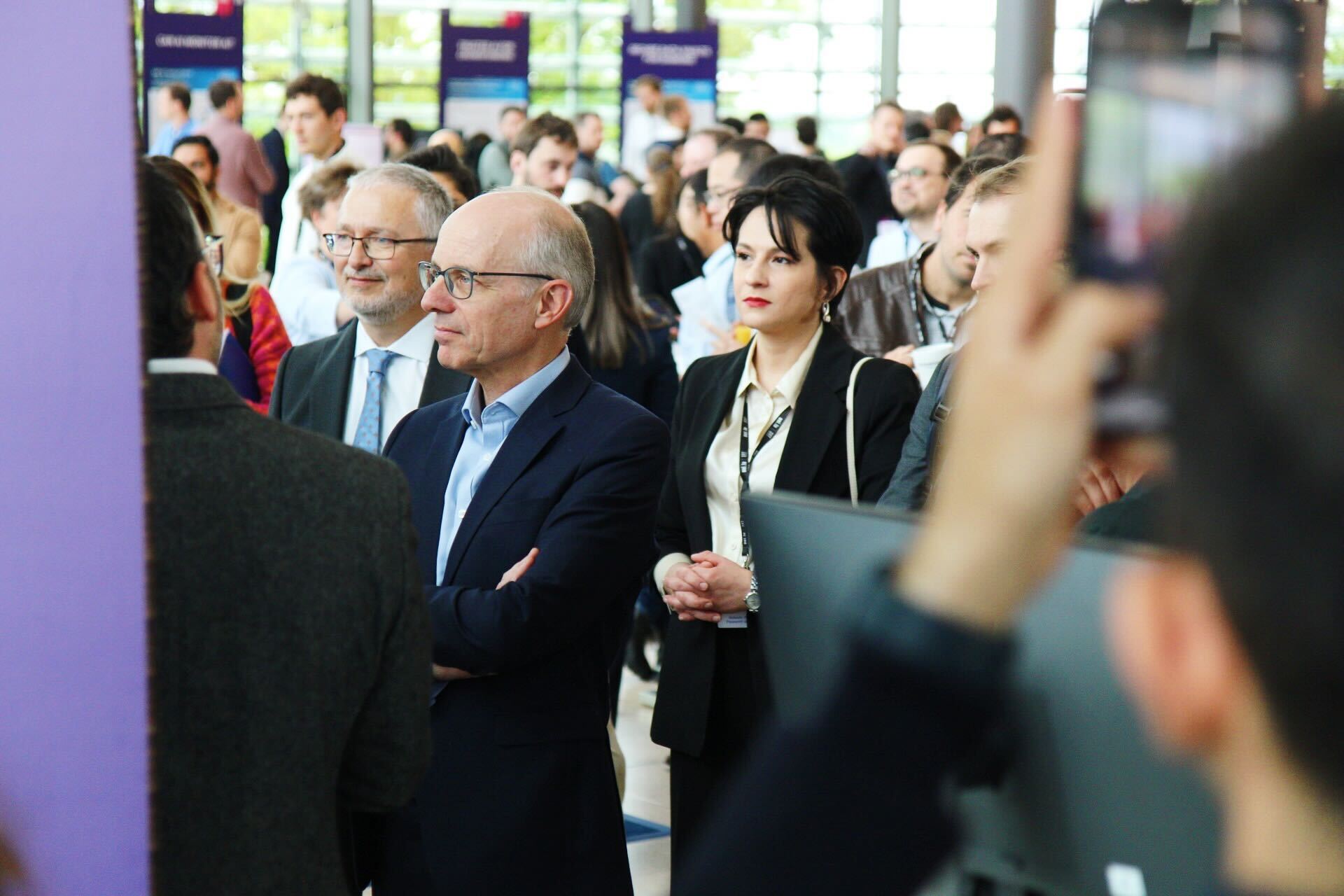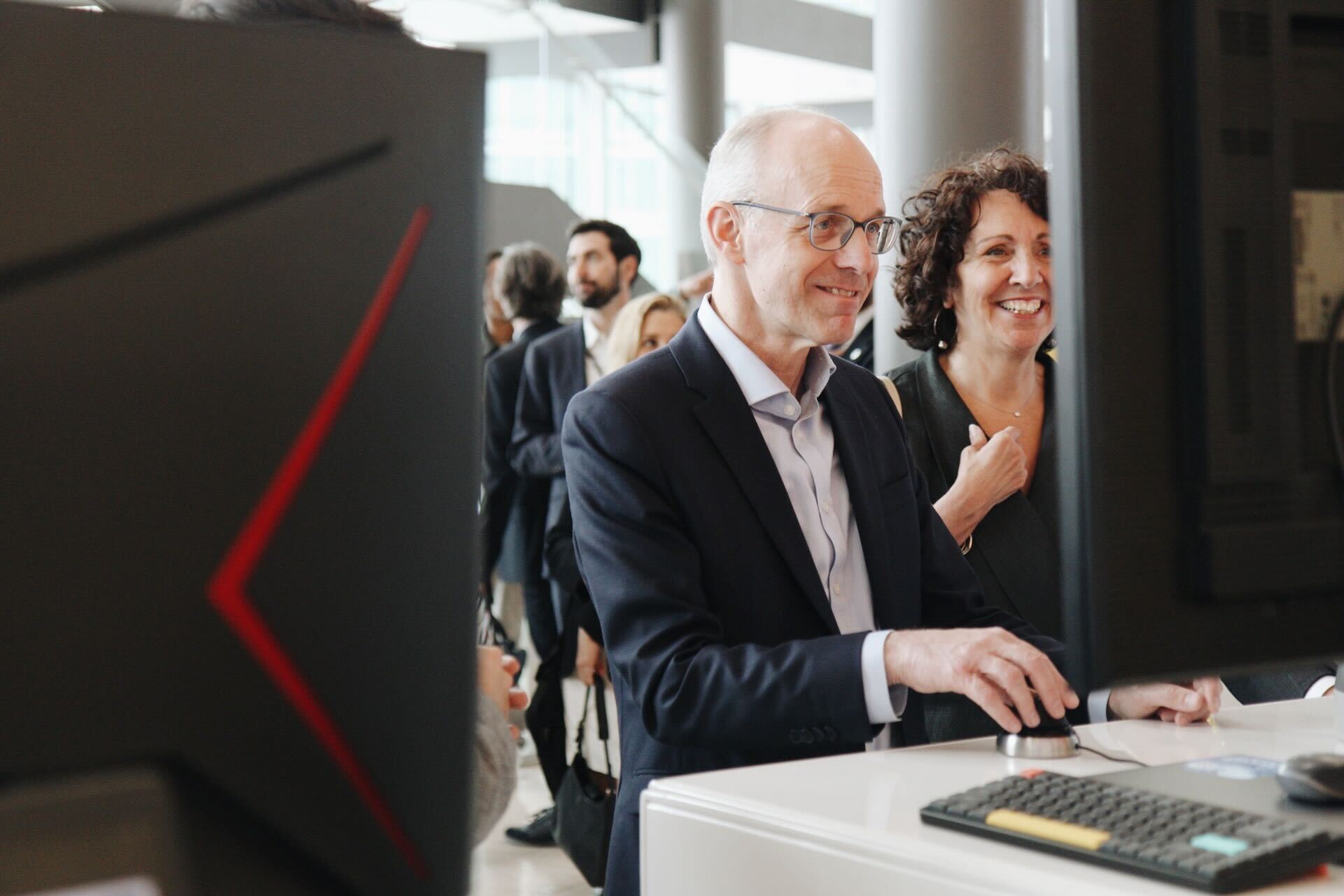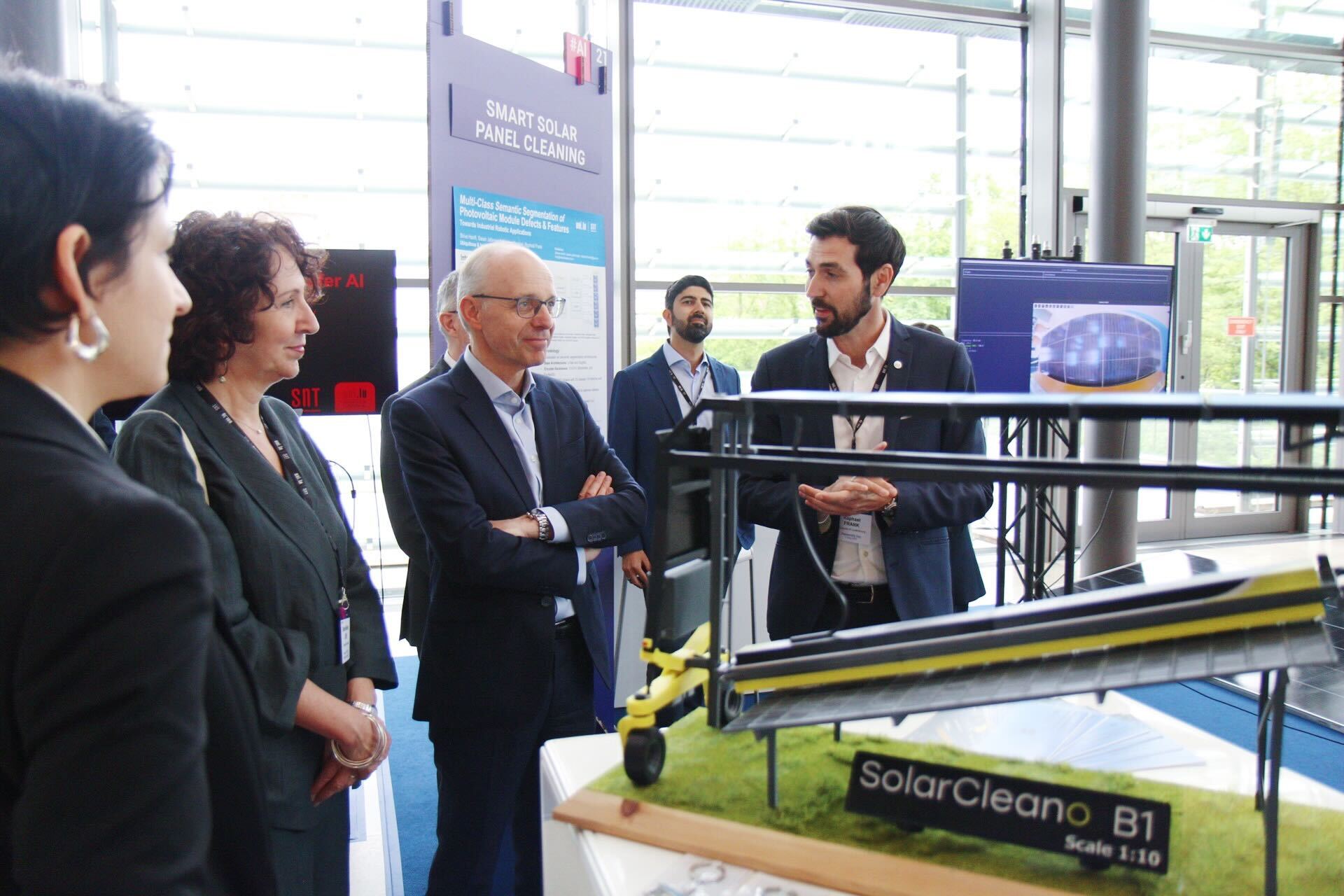Described as the next industrial revolution, Artificial Intelligence is reshaping not just how we work but how we innovate. At the heart of this transformation in Europe is the University of Luxembourg’s Interdisciplinary Centre for Security, Reliability and Trust (SnT) , where 70% of research projects harness the power of AI.
As prime minister Luc Frieden said at the SnT’s 2025 partnership day: “To have a real impact, groundbreaking ideas need to move from the lab to the market, translating knowledge into concrete solutions.”
From Lab to Market: SnT’s Mission
That’s exactly where SnT is focusing its efforts: moving cutting-edge research out of the lab and into the real world. In 2011, it forged its first partnerships to bridge the gap between academic research and industry by fostering collaborative projects that address real-world challenges. Over the years, 80 partners from public and private sectors have invited the SnT to work with them on innovative research in areas such as autonomous systems, cybersecurity, FinTech, and space systems, with a focus on quantum computing and responsible AI. Of that number, almost a third of companies have multiple projects with the SnT.
“It’s hard to be at the forefront of what’s happening, so as a business I would not do my innovation alone. It doesn’t mean you have to do everything with the university. But you have to be open to innovation,” SnT Technology Transfer Centre head Carlo Duprel explained. “You cannot follow the technological pace alone anymore.”
Showcasing AI in Action
On 7 May, hundreds of Luxembourg’s brightest minds gathered in the light, open areas of the European Convention Centre in Kirchberg to demonstrate their projects. The exhibit floor buzzed with roving robots, screens showing eerily realistic deepfakes, and robotic arms simulating maneuvers in space. Picture a scaled-down version of VivaTech—Luxembourg-style—where top academics, entrepreneurs, and public officials converge to explore the cutting edge of applied AI.
“I realised that AI removed the barriers for me to learn.”
Strategic partnerships with industry leaders
Most partners look to SnT not just to solve current technical hurdles, but to anticipate and prepare for future disruptions, like BNP Paribas, which has been a partner since 2017. The latest project is the first R&D bank project to be co-funded by the Luxembourg economy, and examines how to monitor hundreds of AI agents using AI. Duprel explained that the task is already challenging for lab conditions but for a real world setting it is even more onerous, given the regulatory landscape of banking.
Laser-based space communications startup Odysseus Space inked a three-year partnership on Wednesday to jointly study how well light-based communication works between satellites and Earth. By collecting data on how these optical communication systems perform under different conditions, they can design better satellite communication systems. The SnT has the largest public sector research group in the world for satellite communications and telecommunications in general, having worked closely with satellite operator SES. The collaboration with Odysseus involves developing prototypes, recruiting PhD students, and providing capacity building for companies.
Another new joiner is NTT Data whose three-year research programme “Towards trustworthy medical AI from general foundation models” aims to improve LLMs’ explainability in healthcare.
AI’s power to empower and scale
AI is not only beneficial to industry, it also serves a public good, argued John Abel, Senior Technical Director in the Office of the CTO at Google Cloud. In his keynote he shared that he had dyslexia, which meant he had never been able to go to university. “I realised that AI removed the barriers for me to learn. So, I went back to do a degree and I finished it three years ago and then I did a Master’s,” he said.
The second thing that AI does well is to allow for scale. “In Luxembourg today, you have the perfect ecosystem…You have a government that’s clearly articulated their investment, and you have amazing academic capabilities in SnT, with amazing partnerships. Don’t squander this opportunity!” he added.
The talent equation
It was clear from the talks and demonstrations that the passion is there. But so too is the talent. Of the 280 post-docs at the university, typically a third will stay. In some cases, they may even join the partner company. And indeed some form their own spin-offs. Given the huge talent gap facing Europe in general, retaining this influx of talent will be essential for the next step in Luxembourg’s AI strategy.
Luxembourg’s AI roadmap
With publication of this roadmap expected within weeks, prime minister Luc Frieden announced some of the steps to make Luxembourg a leading AI and sovereign data economy within the EU. Top of his list were fostering collaborations between academia, industry and the public sector, financial support for SMEs investing in AI and public-private partnerships, and translating research into marketable solutions, three things that the SnT partnership programme already does very well. But competition with other countries is fierce. Estonia, which is comparable in size to Luxembourg, is already blazing a trail with AI to automate public services. Meanwhile, Singapore has made massive investments in AI literacy and developing advanced AI talent.
To achieve Luxembourg’s lofty goals will require scaling up the SnT’s activities: more partnerships and more talent and more outcomes. Google’s recently launched Centre of Excellence (CoE), hosted by the SnT, will also play a critical role in advancing research, training, and innovation in artificial intelligence (AI) and cybersecurity.
To achieve the goal of building a sovereign data economy, the country also needs businesses to step up, to think about what they will need in the future and reach out to the SnT.
Now is the moment for companies to act—collaborate, innovate, and help position Luxembourg as a sovereign AI powerhouse within Europe. As Frieden said: “It is crucial that the EU has its own expertise in this area, especially if we want that technological progress to be based on our values of transparency and personal freedom.”


